What Is Tongue Cancer?
Tongue cancer is a type of oral cancer that originates when abnormal cells start growing uncontrollably on the surface or within the tissues of the tongue. The tongue, a muscular organ extending from the back of the throat into the mouth, plays a crucial role in taste, speech, chewing, and swallowing.
It’s important to note that tongue cancer can occur in two main areas: the part of the tongue located in the mouth (oral tongue cancer) and the part located in the throat (oropharyngeal tongue cancer). Each type may have different symptoms, treatments, and outcomes.
Early detection of tongue cancer is crucial for effective management.
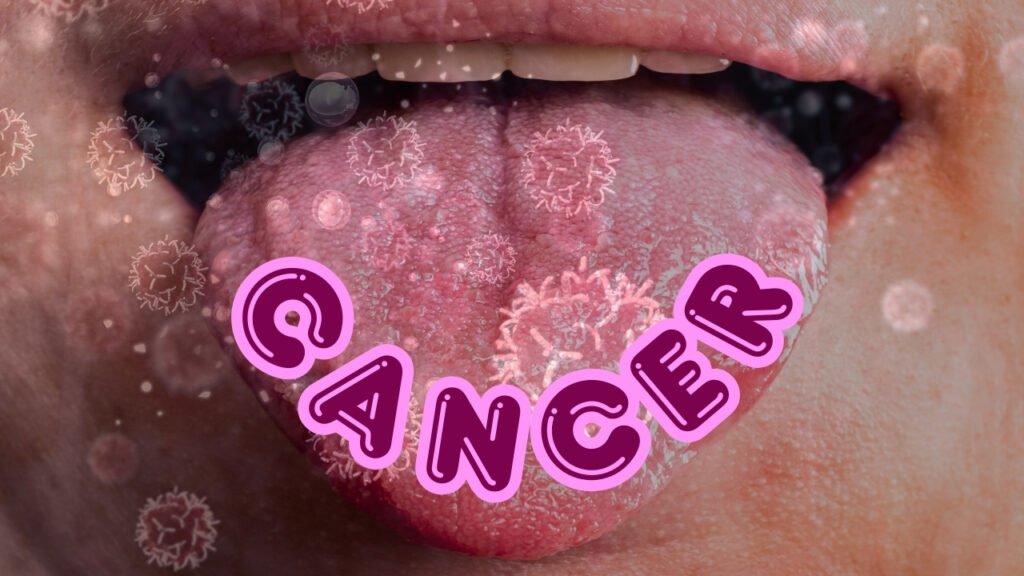
What Are the Causes of Tongue Cancer?
Tongue cancer begins with genetic mutations in healthy cells of the tongue. These mutations alter the DNA—the blueprint that instructs cells on their functions. As a result, the mutated cells start multiplying uncontrollably and refuse to die when they should. This uncontrolled cell growth can form a mass known as a tumor, which may eventually invade nearby tissues or spread to distant parts of the body.
One of the most significant risk factors for developing tongue cancer is tobacco use. All forms of tobacco—including cigarettes, cigars, pipes, chewing tobacco, and snuff—contribute substantially to the risk. Heavy and frequent alcohol consumption also raises the chances of developing tongue cancer. When tobacco and alcohol use are combined, the risk increases even more dramatically.
Neglecting oral hygiene and dental care further adds to the risk, making the mouth more vulnerable to chronic irritation and infections that can trigger cancerous changes. Additionally, individuals over the age of 45 are at a higher risk of tongue cancer.
In recent years, infection with certain strains of human papillomavirus (HPV) has been recognized as another growing risk factor, particularly for cancers located at the base of the tongue.
Recognizing and minimizing these risk factors plays a crucial role in prevention and early intervention.

What Are the Complications of Tongue Cancer?
If tongue cancer is not diagnosed and treated promptly, several complications can arise, impacting both health and quality of life.
One of the immediate complications is persistent bleeding from the tumor site, which can be difficult to control. Infections are also common, especially when the tumor causes open sores or after surgical interventions.
A more severe complication is the development of an abnormal passageway, known as a fistula, which can form between the inside of the mouth and the external skin of the face. This condition often requires surgical correction.
Speech difficulties are another major concern. As the tongue plays a critical role in articulation, any tumor growth or treatment affecting the tongue can impair the ability to speak clearly.
Additionally, difficulty in swallowing (dysphagia) may occur, making it hard to consume food and liquids comfortably. Many patients experience pain during swallowing, which can lead to nutritional deficiencies and weight loss over time.
Timely diagnosis and effective management are crucial to prevent these complications and to preserve as much normal function as possible.
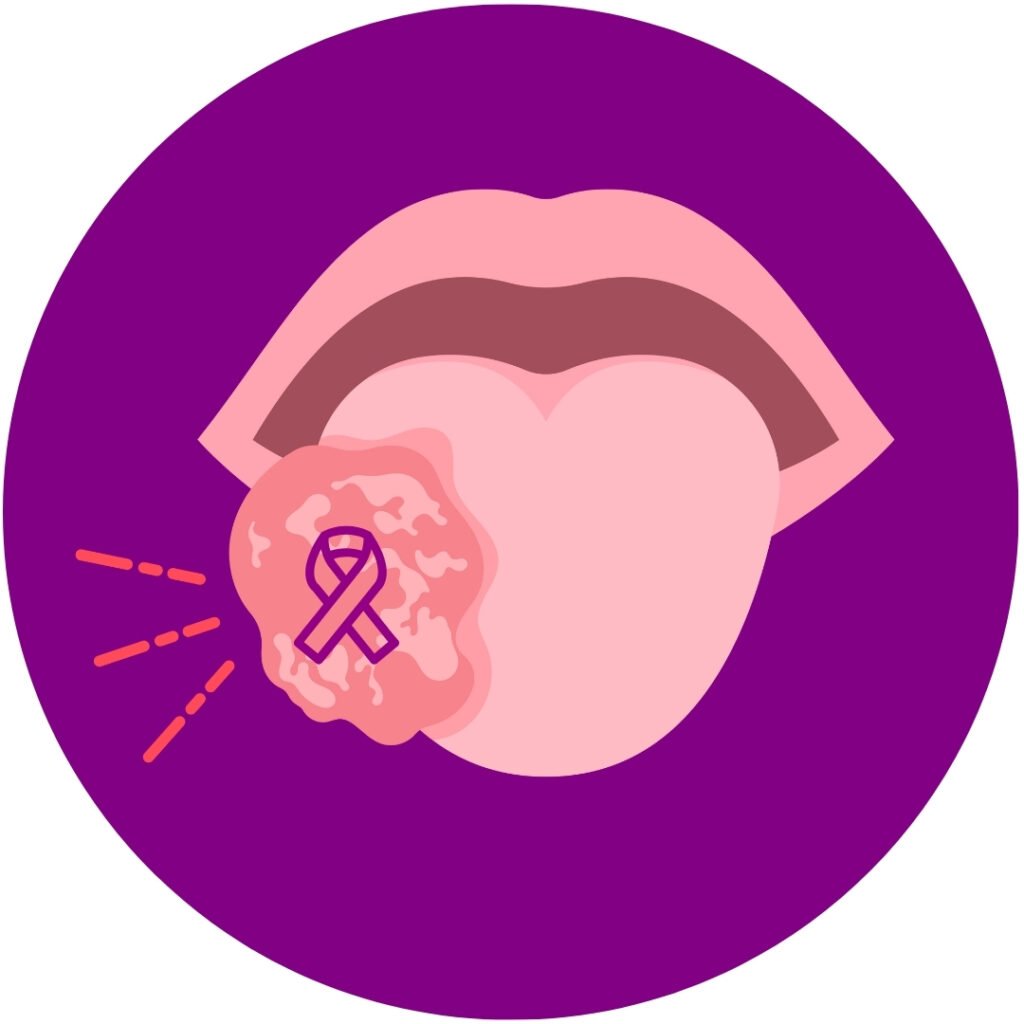
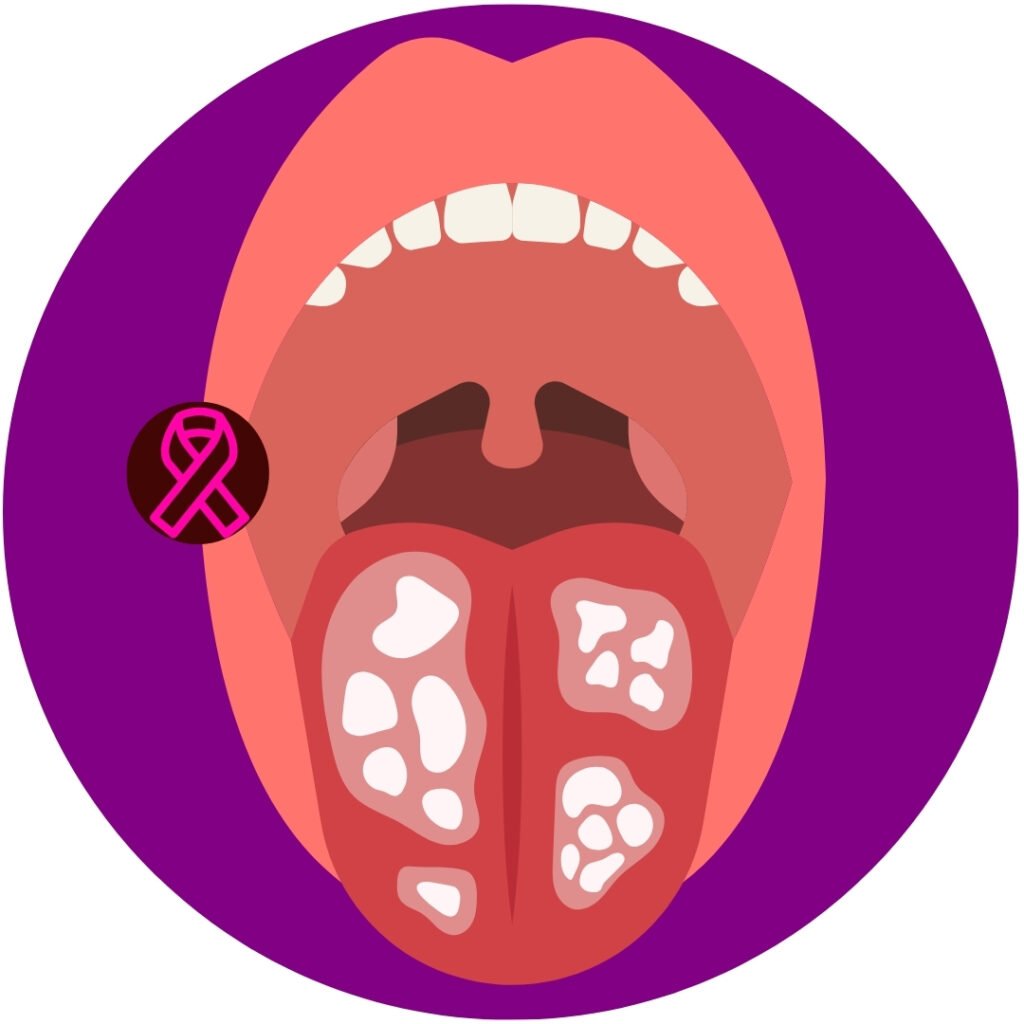
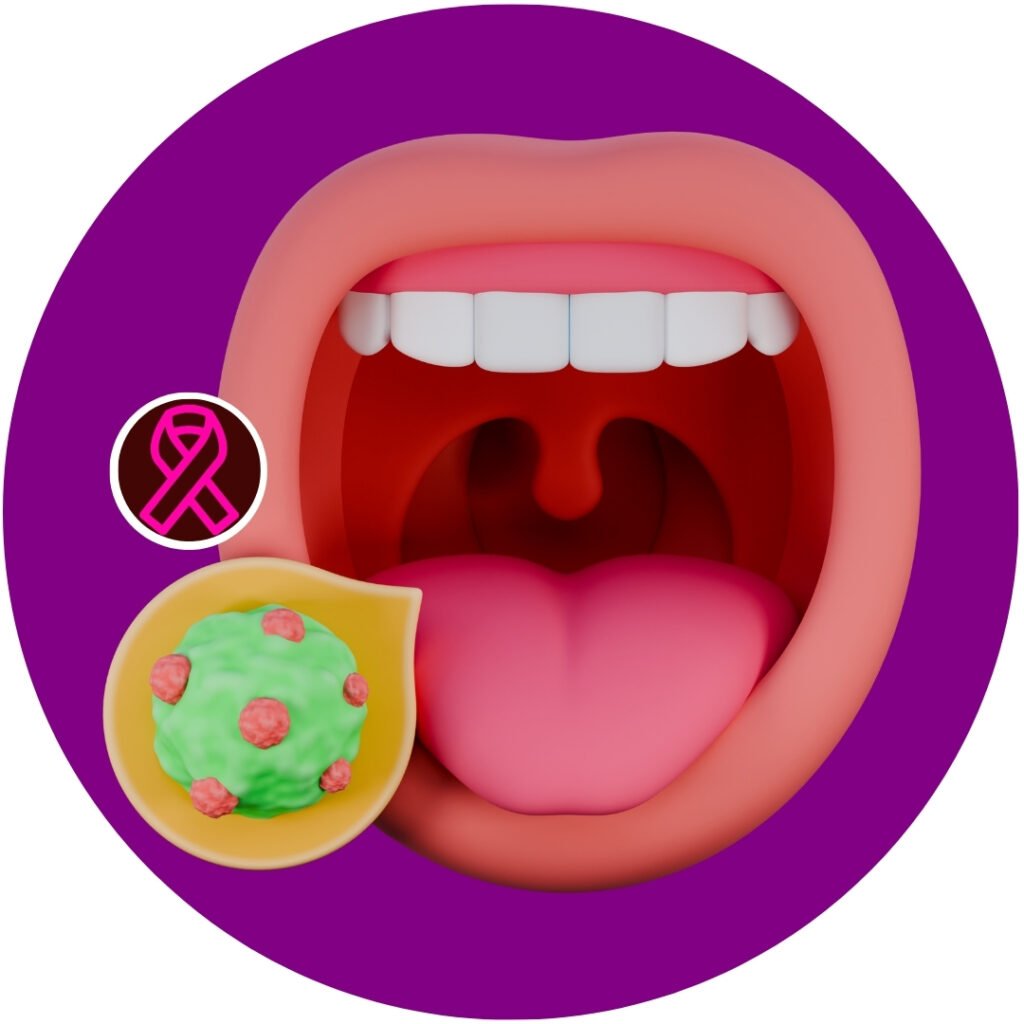
Signs and Symptoms of Tongue Cancer
The early sign of tongue cancer often appears as a non-healing sore or ulcer on the tongue. This sore might be painless at first but can later become painful or bleed easily.
Other noticeable symptoms include a lump or thickening on the tongue, pain in the mouth, or unexplained bleeding.
In cases where tongue cancer develops at the base of the tongue (closer to the throat), the first sign may be swollen lymph nodes in the neck. Additional symptoms might include weight loss, coughing up blood, and ear pain without an ear infection.
You might also observe a red or white patch on the tongue or anywhere inside the mouth. Some individuals experience a persistent sore throat, a sensation of something stuck in the throat, or numbness and tingling in the tongue or mouth.
As the cancer advances, difficulty moving the tongue or jaw, trouble chewing or swallowing, and even visible swelling of the jaw can occur, severely affecting eating and speaking functions.
Early detection of these symptoms is key to better treatment outcomes and recovery.
A New Approach to Cancer Healing
at Raghavan Cancer Care
At Raghavan Cancer Care, treatment goes beyond just managing cancer — it’s a complete journey toward physical, emotional, and spiritual wellness.

Metabolic Healing
Dr. Raghavan follows a powerful method inspired by Dr. Thomas Seyfried, focusing on the unique way cancer cells use energy. By supporting the body through special approaches like a ketogenic diet, this method offers a fresh direction in cancer care rooted in metabolic understanding.

Mind-Body Balance
Taking inspiration from Dr. Joseph Mercola, our care also emphasizes the deep link between the mind, body, and spirit. At Raghavan Cancer Care, we believe that emotional and spiritual support is just as important as physical treatment in the healing process.

Food as Medicine
Dr. Wallach’s nutritional guidance has shaped our strong focus on diet. We promote clean, nutrient-rich meals and personalized nutrition plans to help strengthen the body and support recovery naturally.
